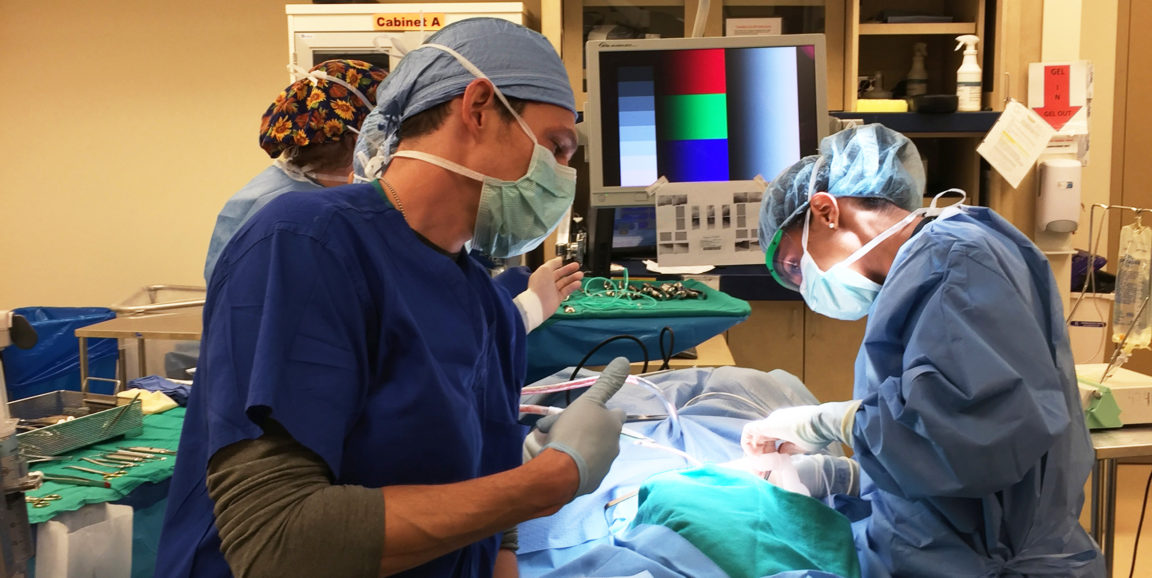In the U.S., medicine and dentistry are separate -- they typically have different insurance systems, training regimes and workplaces. So I was intrigued when I heard about hospital dentists. To learn more about what they do, I spoke with Dyani Gaudilliere, DMD, a clinical assistant professor of surgery and chief of the dental section at the School of Medicine.
Why did you choose to combine dentistry with medicine?
I started on the path towards dentistry in my teens, planning to become an orthodontist. I became increasingly interested in public health, with the goal of treating underserved populations.
At my dental school (Harvard), the dental and medical school courses were combined for the first two years with the goal of fostering a more integrated approach to dentistry, which prepared me well for my current work.
The split between medicine and dentistry is, in fact, completely artificial. The bacterial diseases of the teeth and gums affect the entire immune system and can cause serious systemic consequences. In addition, many systemic diseases and medications have oral manifestations.
What do you do at Stanford?
The majority of our patients at Stanford are being treated for cancer, organ transplantation, cardiac disease or joint replacement. Our goal is to rid these patients of bacterial disease prior to their treatments. It may be risky to treat them outside the hospital, without access to the their full medical records or emergency services. Lack of dental insurance can also be a barrier for patients whose chronic disease prevents them from being employed.
Could you tell me more about your patients?
One large category of patients we see are those with cancer of the head and neck. Targeted radiation to this area and chemotherapy have serious long-term side effects, ranging from dry mouth resulting in rampant tooth decay to severe jaw infections. We perform dental examination and patient education prior to these treatments. We also partner with the head and neck surgeons to remove infected teeth during their cancer resection surgery. And we create special oral positioning devices to aid the radiation oncologists in spacing and immobilizing the tissues during radiation therapy.
We also see patients before medical treatments that will leave them immunocompromised, such as chemotherapy or organ transplantation. Chronic tooth or gum infections can suddenly become life threatening in a patient who is immunocompromised.
A third example is trauma. It is common for patients to get in minor bike accidents and fly right over their handlebars onto their teeth. We see these patients in the emergency department urgently in order to put the teeth and supporting bone back into place and then stabilize them with cemented splints.
Are there many hospital dentists?
I believe there isn't enough awareness of the medical necessity of dental care, nor are there enough hospital dentists. Some hospitals are lucky to be affiliated with dental schools, whereas most have no in-house or emergency dental team at all. We regularly receive patients transferred from outside hospitals with large infections or oral trauma, because these hospitals didn't have anybody with the right expertise to treat the conditions.
There are a lot of barriers we need to cross in order to fully integrate dentistry and medicine, but I think this integration is way overdue.
Why are dentistry and medicine separate?
The reason for the separation seems to be a combination of history and politics. Tooth extractions and other surgeries were historically performed by barber-surgeons rather than physicians, and oral care developed as a separate track from care of literally every other part of the body. Fast forward to today and you have some dentists lobbying to sustain this separation in order to spare their profession from the regulations and changes occurring in the medical care world.
The idea that dentists would not need medical knowledge is laughable considering how much surgery they perform. Dentists who don't understand medications and their mechanisms would not last long after their patient on blood thinners loses pints of blood after an extraction.
Photo of Dyani Gaudilliere (right) by Vladimir Nekhendzy




